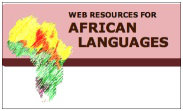Linguistic Assimilation
The threat of extinction of minority languages by Innocent Maja
Most minority languages[1] in the world are currently in rapid decline and face a serious threat of extinction.[2] Nettle, Daniel and Romaine, Suzanne have estimated that up to 90% of the world’s languages are now considered endangered.[3] Crace argues that “there are about 6,000 languages in the world yet 55 per cent of the population speaks just 15 of them. Economic imperialism has gone hand in hand with linguistic imperialism as people abandon their mother tongues in favour of the globally dominant English, Spanish, Arabic, Chinese and Russian”.[4] Krauss goes further and predicts from the present trends that of the 6000 languages spoken today, between 20% to 50% will ‘die’ by the end of the twenty-first century[5].
On the African landscape, the drive towards national unity, social integration and construction of a national identity in most African countries has led to linguistic assimilation, linguistic loss and discrimination against linguistic minorities.[6] Nancy Dorian[7] vividly echoes a similar sentiment when she contends that ‘‘it is the concept of the nation-state coupled with its official standard language … that has in modern times posed the keenest threat to both the identities and the languages of small [minority] communities’. Bamgbose[8] convincingly argues that the rationale for this approach is twofold namely: the notion that multilingualism inhibits national integration, and the notion that national integration necessarily involves the emergence of a nation state with only one national language. Linguistic diversity, linguistic minorities and minority languages have been viewed as problems in such nation states. Minority language speakers are constructed as linguistic oddities, deficient, suffering from lack of knowledge of the dominant language, rather than owners of a positive resource, another language, or multilingual skills.
Suffice it to mention that the nation state argument is not sustainable because it overlooks two salient facts. Firstly, linguistic diversity per se is not a political problem. Rather, ignoring linguistic diversity is the problem. Secondly, national unity does not imply cultural or linguistic uniformity. Instead, nation states can be more representative and achieve stronger and sustainable unity if they guarantee the right of minority communities and their individual members to distinct language and cultural practices, and do not withhold resources or power from such communities.
The antagonism towards minority languages in most bilingual or multilingual African countries has led to linguistic assimilation and loss of minority languages. Stephen May[9] aptly captures this assertion when he argues that
"a ‘majority’ language – that is, a language with greater political power, privilege and social prestige – comes to replace the range and functions of a ‘minority’ language. The inevitable result of this process is that speakers of the minority language ‘shift’ over time to speaking the majority language. The process of language shift described here usually involves three broad stages. The first stage sees increasing pressure on minority language speakers to speak the majority language, particularly in formal language domains. This stage is often precipitated and facilitated by the introduction of education in the majority language. It leads to the eventual decrease in the functions of the minority language, with the public or official functions of that language being the first to be replaced by the majority language. The second stage sees a period of bilingualism, in which both languages continue to be spoken concurrently. However, this stage is usually characterised by a decreasing number of minority language speakers, especially among the younger generation, along with a decrease in the fluency of speakers as the minority language is spoken less, and employed in fewer and fewer language domains. The third and final stage – which may occur over the course of two or three generations, and sometimes less – sees the replacement of the minority language with the majority language. The minority language may be ‘remembered’ by a residual group of language speakers, but it is no longer spoken as a wider language of communication."
Little attention has been given to minority language rights in Africa. Unlike Central and Eastern Europe where the issue of language has, time and again, prompted political action, legislation and international treaties; there has been little, if any, political action, legislation and no regional treaties addressing the problem of marginalisation of minority languages. This has led to language issues being one of the causes of conflict rather than a unifier in Africa.
[1] Three points are worth noting here. Firstly, although there is debate among linguists on the precise definition of ‘language’, Isaac Mumpande (note 13 below) convincingly argues that it is generally agreed that language is a major vehicle for communication of ideas and culture. Secondly, there is no universally accepted definition of minority languages. However, I will provide a working definition of minority languages in the first section of Chapter 2. Thirdly, minority languages do not need a precise definition first before human rights instruments can protect them. They are currently protected in the absence of a precise definition.
[2] See an article by Stephen May entitled ‘Uncommon Languages: The Challenges and Possibilities of Minority Language Rights’ in Journal of Multilingual and Multicultural Development Vol. 21, No. 5, 2000 366
[3] In their book, ‘Vanishing Voices: The Extinction of the world’s languages’, New York: Oxford University Press. Also Crystal, David (2000) Language Death Cambridge Cambridge University Press.
[4] Crace J in the article ‘Silence Falls’, found in the Mail & Guardian of 22-28 November 2002.
[5] Krauss, M. (1992) The world’s languages in crisis. Language 68, 4–10.
[6] See Blommaert, JAN. 2006. Language policy and national identity. In Ricento, T (ed.), An introduction to language policy: Theory and method. Oxford: Blackwell Publishing. x-xii)
[7] Dorian, N. (1998) Western language ideologies and small-language prospects. In L. Grenoble and L. Whaley (eds) Endangered Languages: Language Loss and Community Response (pp. 3–21). Cambridge: Cambridge University Press.
[8] Bamgbose, Ayo 1991. Language and the nation: The language question in Sub Saharan Africa. Edinburgh: Edinburgh University Press.
[9] Note 3 above
- Login to post comments


